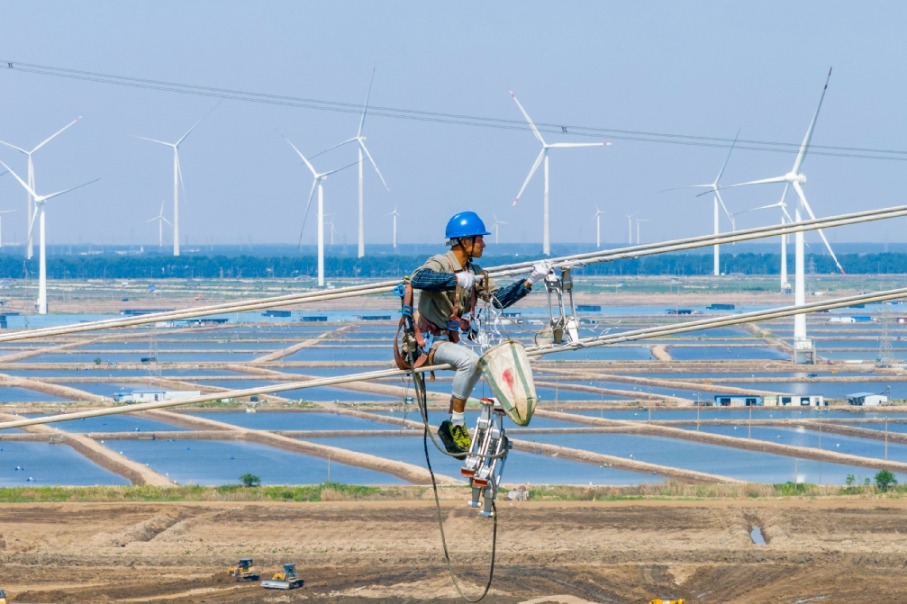Flaws in yuan's one-way flow

The Chinese government is considering allowing foreign businesses to invest in non-financial sectors in China using the yuan, according to recent media reports.
Although it's likely that the plan will not be carried out anytime soon due to the government's fears over the influx of hot money, the news conveys a positive message: Chinese policymakers are attempting to address a major flaw in its efforts to globalize the yuan.
The problem is that the globalization of the yuan is largely a one-way street: A lot of yuan notes are flowing out of the country but not much is flowing back.
The scenario is justifiable since China has been encouraging its traders and investors to use the yuan in foreign trades and investments but has been limiting overseas investors from spending yuan notes in China.
China has signed currency swap deals with at least eight countries and regions: South Korea, Hong Kong, Malaysia, Belarus, Indonesia, Argentina, Singapore and Iceland. Investors in these countries and regions will now be able to use a total of 803.5 billion yuan ($120 billion) in trades with mainland companies.
But overseas investors now have very few channels to invest the yuan in China. In fact there are only two major channels for them to do so. They could pay in yuan for imports from the mainland or they could invest in the mainland's interbank bonds market using the yuan. Unfortunately, this market is only open for Hong Kong investors.
But these two investment channels are not very attractive to overseas investors because the returns are not high.
The main reason why foreign investors are reluctant to spend their yuan is their expectation that the yuan will rise in value.
The yuan has appreciated 4 percent against the greenback since June last year, when the yuan ended its peg to the US dollar. Taking inflation into account, the yuan has jumped 10 percent. Apart from that, the yuan enjoys a more than 5-percentage-points interest gain compared with the US dollar. That gap is widening as China is expected to ramp up interest rates in next few months.
Since overseas investors can pay Chinese traders in the US dollar, what is the point for them to use yuan notes?
But if the flow of the yuan is a one-way street, it will cripple the globalization of the Chinese currency. After all, the ultimate goal is to make the yuan a cross-border and reserve currency that can flow freely and can mitigate risks stemming from the current financial system dominated by the US dollar.
In fact, overseas investors who own yuan notes are biding their time. They are waiting until better investment opportunities are available.
To make overseas businesses willing to spend the yuan in China, the best way is to allow them to get higher yields from investments. One such way is to allow them to invest directly in the yuan in China, a deregulation measure that allows overseas yuan to flow back into the nation. Overseas companies currently must receive approval from the State Administration of Foreign Exchange, China's foreign exchange watchdog, to convert foreign currencies into yuan.
Indeed, there are more ways to attract overseas investors to spend the yuan in China. An investment scheme called mini-QFII (qualified foreign institutional investor) has been discussed for some time. The plan is expected to allow Hong Kong investors to invest their yuan in the mainland's yuan-denominated A-share stock market.
But the mainland is not expected to enact these deregulations for overseas yuan holders anytime soon because of concerns over hot money. China is leaving no stone unturned to fight rising inflation.
But the People's Bank of China's first publicly released report on hot money showed that hot money inflows have climbed to $35.5 billion in 2010, accounting for 7.6 percent of the increase in foreign exchange reserves from a year earlier. The percentage is smaller than estimated and is expected to convince policymakers that speculative money inflow is controllable.
Since Chinese policymakers have realized the flaw of the one-way flow of the yuan and are thinking of ways to rectify it, we can expect deregulations on yuan inflows to be put on the government's agenda once inflation concerns abate.
The author is an independent financial analyst and business consultant in Shanghai.
Today's Top News
- China opposes any tariff deal made at its expense: commerce ministry
- Nepal's hydropower a climate change solution
- UN Charter still guiding compass of humankind
- Leaders pledge to strengthen Sino-Senegalese relations
- China, Ecuador to support each other's core interests
- Details on trade talks confirmed






























